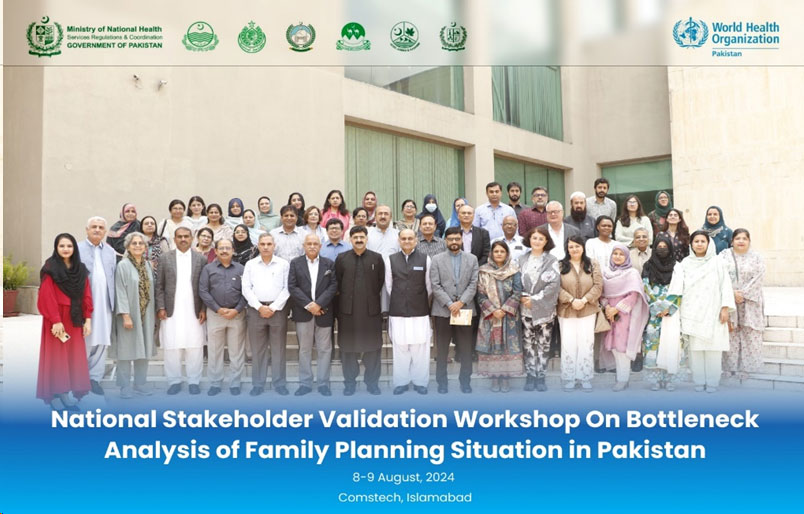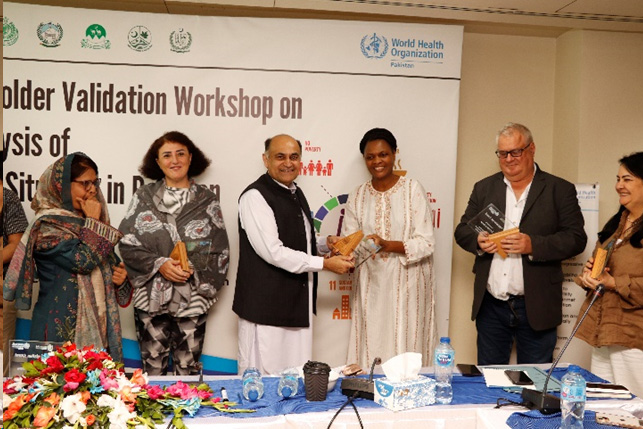
27 August, Islamabad, Pakistan – A 2-day workshop convened by the Ministry of National Health Services, Regulation and Coordination (MoNHSR&C) on 7–8 August 2024 at COMSTECH Islamabad brought together stakeholders to validate the preliminary findings of its bottleneck analysis (BNA) of family planning in Pakistan.
WHO provided the Ministry with technical assistance to conduct the BNA exercise which aimed to identify challenges to, and guide policies and plans for improving population management.
The 2-day workshop was facilitated by a WHO mission comprising of experts – Dr Petrus Steyn and Dr Moazzam Ali – from WHO Headquarters and Dr Karima Ghoblzouri and Dr Samar El Feky from the Regional Office for the Eastern Mediterranean.
 MoNHSR&C was represented by Mr Seyyed Waqar Ul Hassan, Special Secretary National Health Services, and Dr Shabana Saleem, the Director General (Population), who thanked stakeholders from across the country for making the workshop a success.
MoNHSR&C was represented by Mr Seyyed Waqar Ul Hassan, Special Secretary National Health Services, and Dr Shabana Saleem, the Director General (Population), who thanked stakeholders from across the country for making the workshop a success.
Recognising their impact not only on health but on other social and economic sustainable development goals, the MoNHSR&C reiterated its commitment to family planning interventions.
Stakeholders reviewed the preliminary findings of the BNA and prioritized three bottlenecks under each of the three themes – post-pregnancy family planning, task shifting and task sharing and social and behavioural change. – for action.
Stakeholders suggested possible solutions to the bottlenecks to be considered for scale-up.
During the course of the meeting, Mr Waqar presented awards of recognition to members of the WHO mission and the WHO country office team led by Ms Ellen Thom.


